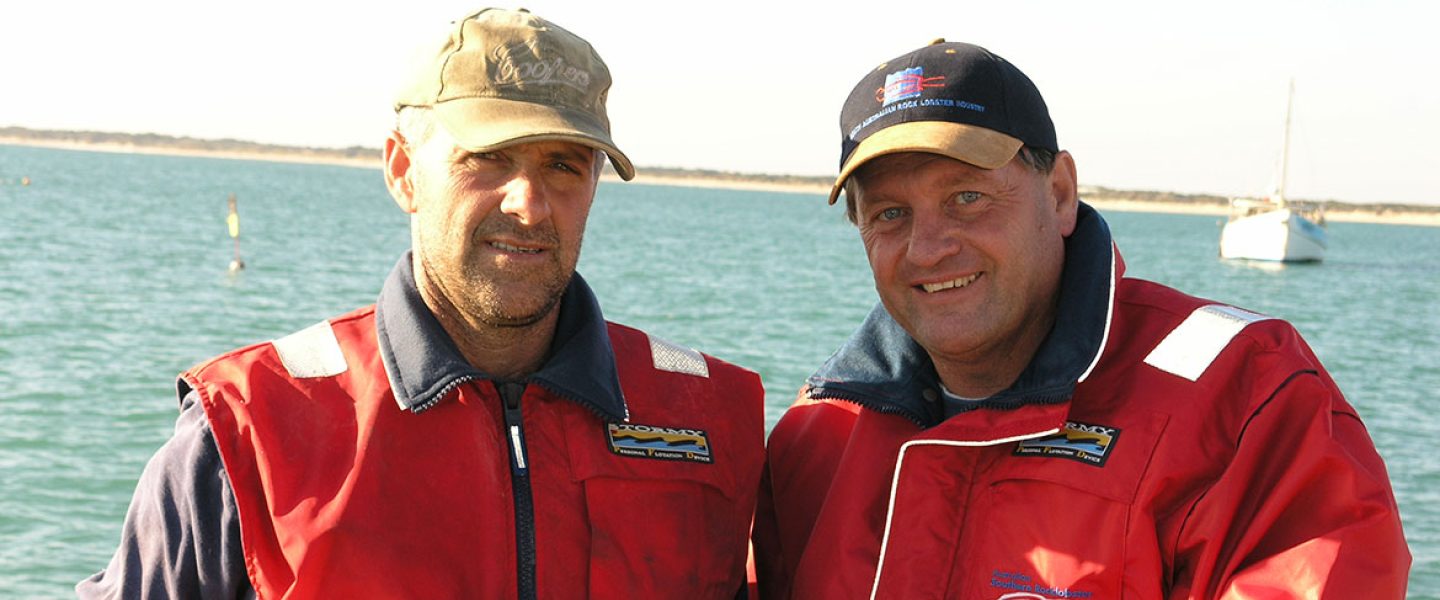The Clean Green Program was first introduced to industry in 2004 and was a World-first Rock Lobster supply chain management strategy. Clean Green is the industry vehicle to train and maintain the Southern Rock Lobster industry to World's best practice and was developed as an integrated ‘pot-to-plate’ Product Standard with independent third-party auditing of practices. Development of the Program was initiated by Rock Lobster fishermen in the late 1990’s in response to serious challenges to work practices / vessel operations, food safety and evolving environmental legislation.
Currently, more vessels are participating in the Clean Green Program than at any stage since its inception in 2004 - in excess of 200 Southern Rock Lobster fishing vessels across Southern Australia are current Program members. Re-aligning Clean Green to address new and changing legislative requirements has been the key driver for the increased support from industry.
During 2014-15 there was a considerable revision to components of the Clean Green Program to incorporate best-practice requirements in relation to vessel safety via implementation of a rigorous Safety Management System (SMS), as well as addressing new Work, Health & Safety (WH&S) requirements for work-related tasks. SRL partnered closely with the relevant regulators to undertake the review.
The Program was updated in response to the Australian Maritime Safety Authority (AMSA) introducing a National Standard for Commercial Vessels (NSCV) (specifically, Part E - Operations) requiring all vessels to have an SMS. The update to Clean Green’s WH&S content addressed changing legislative requirements for managing risks associated with workplace-related tasks in fishing operations.
The Program successfully demonstrates the industry is well-organised and mature enough to address its responsibilities and interests through an industry-developed and owned, self-managed and independently audited, standards-based program in the key areas of:
- Vessel SMS and On-Board WH&S - Specific to the risks of Rock Lobster fishing vessel operations and workplace risks and hazards.
- Food Safety & Quality - Implementing Good Manufacturing Practice (GMP) to ensure a premium live, healthy product across the supply chain.
- Animal Welfare - Important in itself, and expected by the community, but also important from an economic perspective; live and healthy rock lobsters achieve a premium price and in what is predominately a live-trade industry.
- Environmental Management / Sustainability - Best practice management of fishing operations within the marine environment, including addressing Threatened, Endangered and Protected Species (TEPS) requirements plus responsible disposal and recycling of marine wastes e.g. oil, plastics and cardboard, and not supporting the use of plastic bait box straps.
- Sustainable Management - Ensuring the wild Rock Lobster stocks are managed for long term sustainability through ongoing compliance with the Environment Protection and Biodiversity Conservation (EPBC) Act 1999.
To participate in the Clean Green Program skippers (also available to crew) need to attend a two-day training course where all required documentation is supplied. The interactive training is one of the Program’s strengths and is supported by a comprehensive On-Board Induction Manual covering all Program requirements. First aid training is also required.
Following training, skippers and their vessels undertake a pre-audit and, once any corrective requirements are addressed, an independent audit is arranged to finalise certification.
SRL is also preparing a project to deliver the Clean Green Program in a digitised format i.e. via an app suitable for use on iPhone and iPad platforms. In addition to reviewing current program content for the ‘catching sector’, the project will also review the original material developed for the post-harvest sector (processing / exporting operations) for digitisation and to continue to expand the program across the supply chain.
The project will be transformational in relation to all aspects of Program administration, communication with members, management of the underpinning audit process, as well as providing huge scope to work with regulators to further capitalise on opportunities for industry self-regulation.
